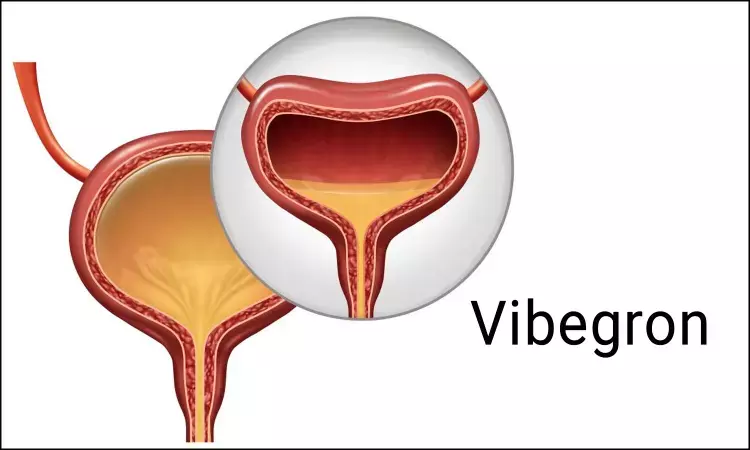- Home
- Medical news & Guidelines
- Anesthesiology
- Cardiology and CTVS
- Critical Care
- Dentistry
- Dermatology
- Diabetes and Endocrinology
- ENT
- Gastroenterology
- Medicine
- Nephrology
- Neurology
- Obstretics-Gynaecology
- Oncology
- Ophthalmology
- Orthopaedics
- Pediatrics-Neonatology
- Psychiatry
- Pulmonology
- Radiology
- Surgery
- Urology
- Laboratory Medicine
- Diet
- Nursing
- Paramedical
- Physiotherapy
- Health news
- Fact Check
- Bone Health Fact Check
- Brain Health Fact Check
- Cancer Related Fact Check
- Child Care Fact Check
- Dental and oral health fact check
- Diabetes and metabolic health fact check
- Diet and Nutrition Fact Check
- Eye and ENT Care Fact Check
- Fitness fact check
- Gut health fact check
- Heart health fact check
- Kidney health fact check
- Medical education fact check
- Men's health fact check
- Respiratory fact check
- Skin and hair care fact check
- Vaccine and Immunization fact check
- Women's health fact check
- AYUSH
- State News
- Andaman and Nicobar Islands
- Andhra Pradesh
- Arunachal Pradesh
- Assam
- Bihar
- Chandigarh
- Chattisgarh
- Dadra and Nagar Haveli
- Daman and Diu
- Delhi
- Goa
- Gujarat
- Haryana
- Himachal Pradesh
- Jammu & Kashmir
- Jharkhand
- Karnataka
- Kerala
- Ladakh
- Lakshadweep
- Madhya Pradesh
- Maharashtra
- Manipur
- Meghalaya
- Mizoram
- Nagaland
- Odisha
- Puducherry
- Punjab
- Rajasthan
- Sikkim
- Tamil Nadu
- Telangana
- Tripura
- Uttar Pradesh
- Uttrakhand
- West Bengal
- Medical Education
- Industry
Vibegron improves quality of life in men with overactive bladder and BPH, States study

A new drug, vibegron, was found to be effective and safe in men with from overactive bladder (OAB) and benign prostatic hyperplasia (BPH) in a recent phase 3 randomized controlled trial. This study published in the recent edition of Journal of Urology evaluated the use of vibegron, a β3-adrenergic receptor agonist.
The trial included men over the age of 45 with symptoms of OAB along with BPH. These participants were already receiving pharmacologic treatment with or without the addition of 5α-reductase inhibitors. A total of 1,105 men were randomly assigned to receive either vibegron or a placebo over a period of 24-week. The primary endpoints of the study were the changes from baseline by week 12 in the average number of daily micturitions (urinations) and urgency episodes. Secondary endpoints included changes in nightly nocturia (nighttime urination), daily urge urinary incontinence episodes, International Prostate Symptom Score (IPSS)-storage score and the volume voided per micturition.
At week 12, vibegron significantly reduced the number of daily micturitions and urgency episodes than the placebo. Also, vibegron users underwent an average reduction of 0.74 micturitions and 0.95 urgency episodes per day. These improvements were statistically significant where both reductions had a P-value of less than .0001 which indicated a high level of confidence in the outcome.
Vibegron also showed benefits in the secondary endpoints where the participants using vibegron had fewer nocturia episodes, with an average reduction of 0.22 episodes per night. Also, they had 0.80 fewer daily urge urinary incontinence episodes. The IPSS-storage score measured the severity of urinary symptoms which showed improvement by an average of 0.9 points in the vibegron group. The volume voided per micturition increased by 15.07 mL suggested that vibegron helped the bladder to hold more urine between voids.
Adverse events (AEs) occurred at similar rates in both the vibegron (45.0%) and placebo (39.0%) groups. The common AEs included hypertension, COVID-19, urinary tract infections (UTIs) and hematuria was occurring at comparable rates in both the groups. The findings of this trial indicated that vibegron meets all primary and secondary endpoints and is also well tolerated among the men with OAB symptoms and BPH. Overall, this makes vibegron as a potential treatment option for enhancing the quality of life for men with these prevalent conditions.
Source:
Staskin, D., Owens-Grillo, J., Thomas, E., Rovner, E., Cline, K., & Mujais, S. (2024). Efficacy and Safety of Vibegron for Persistent Symptoms of Overactive Bladder in Men Being Pharmacologically Treated for Benign Prostatic Hyperplasia: Results From the Phase 3 Randomized Controlled COURAGE Trial. In Journal of Urology (Vol. 212, Issue 2, pp. 256–266). Ovid Technologies (Wolters Kluwer Health). https://doi.org/10.1097/ju.0000000000003999
Neuroscience Masters graduate
Jacinthlyn Sylvia, a Neuroscience Master's graduate from Chennai has worked extensively in deciphering the neurobiology of cognition and motor control in aging. She also has spread-out exposure to Neurosurgery from her Bachelor’s. She is currently involved in active Neuro-Oncology research. She is an upcoming neuroscientist with a fiery passion for writing. Her news cover at Medical Dialogues feature recent discoveries and updates from the healthcare and biomedical research fields. She can be reached at editorial@medicaldialogues.in
Dr Kamal Kant Kohli-MBBS, DTCD- a chest specialist with more than 30 years of practice and a flair for writing clinical articles, Dr Kamal Kant Kohli joined Medical Dialogues as a Chief Editor of Medical News. Besides writing articles, as an editor, he proofreads and verifies all the medical content published on Medical Dialogues including those coming from journals, studies,medical conferences,guidelines etc. Email: drkohli@medicaldialogues.in. Contact no. 011-43720751


